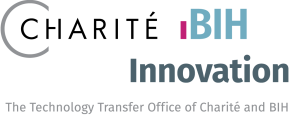At the event, the I4H funded projects presented their successes and learnings to an audience of more than 40 former advisors, coaches, jury members, and supporters of the program. The aim of this final Pitch Event was to invite all contributors of the program to get insights on how the ideas developed and to receive an opportunity to provide the teams with more tips and valuable network opportunities.
The I4H was initially designed as a Pilot Program by SPARK-BIH and funded by the Stiftung Charité to enhance the development of breakthrough medical innovations and help create a new generation of inventors. This was accomplished by working with early-stage medical innovators making use of a medical design thinking approach to develop viable and robust solutions that carefully consider the potential end user. Two innovator bootcamps were run during the spring of 2019 and the summer of 2020 for 10 teams. Six teams were further funded by the Stiftung Charité and supported within SPARK-BIH for up to 18 months.
As particularly valuable, participants and program managers identified the bootcamps, in which ideas were turned upside down and critically assessed with a design thinking approach. Furthermore, clinicians and researchers were partially released from clinical and laboratory duties that allowed the innovators to advance their solution and strengthen their inventors muscle.
“The I4H helped us to focus on the problem and reframe our idea based on the user perspective,” reflected one of the I4H participants. “During the program, we not only considered the clinical point of view but also addressed business development and the user perspective.“
Overall, 50% of the I4H projects were able to secure follow-on funding. In the future, the I4H Pilot Program will serve as a blueprint for further scouting activities at the BIH and Charité and has already been adapted by the Berlin based Cluster of Excellence NeuroCure to explore problem-solving tools in the context of medical innovation. Explorations on how such a program could be iterated, further improved and finally implemented as a 2.0 version are currently ongoing.


